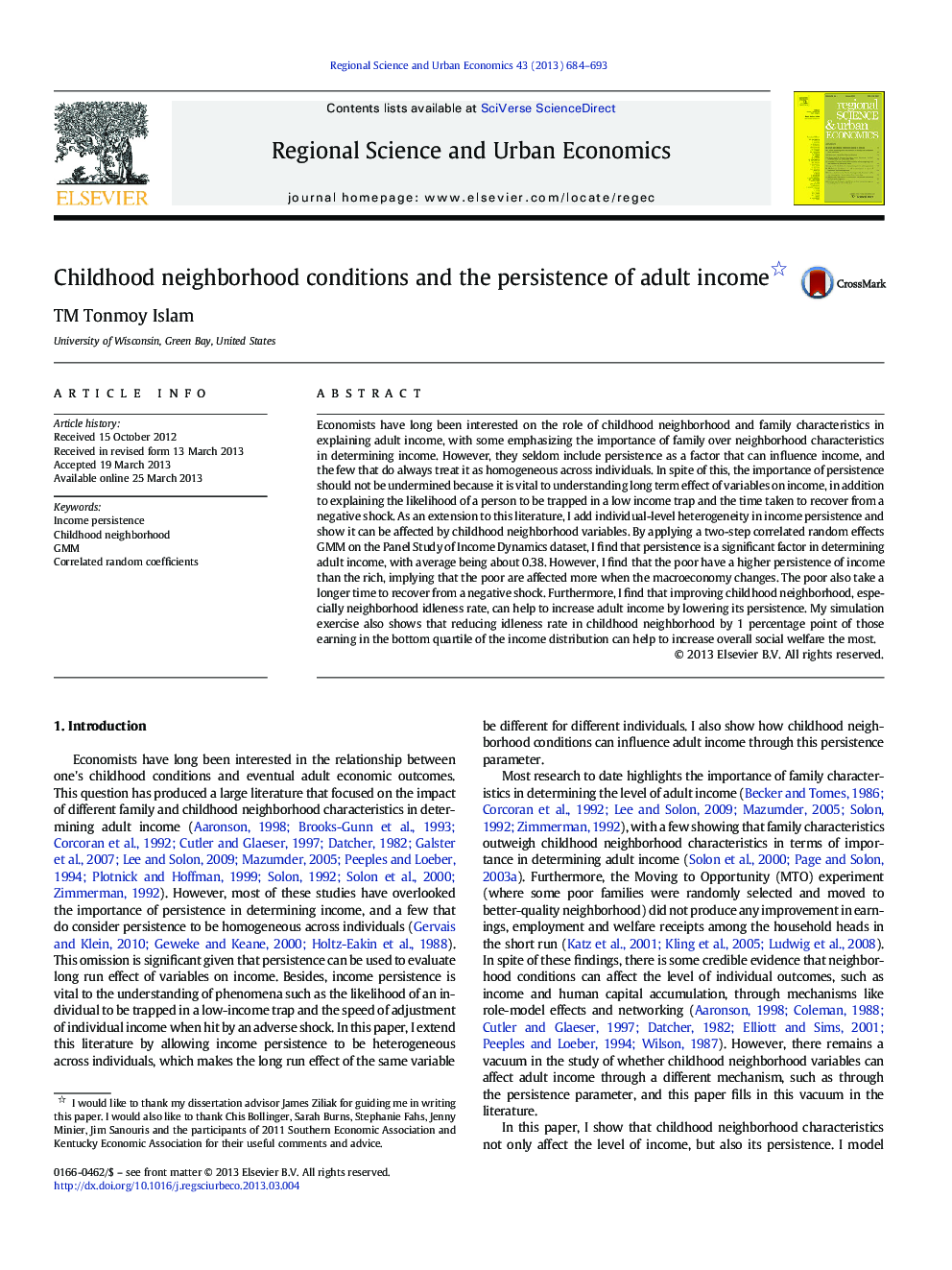| Article ID | Journal | Published Year | Pages | File Type |
|---|---|---|---|---|
| 983372 | Regional Science and Urban Economics | 2013 | 10 Pages |
•It shows how childhood neighborhood conditions affect individual income dynamics.•Income persistence is an important factor in determining adult income.•Neighborhood idleness rate during childhood can affect income persistence.•Improving neighborhood idleness rate can improve social welfare of the community.
Economists have long been interested on the role of childhood neighborhood and family characteristics in explaining adult income, with some emphasizing the importance of family over neighborhood characteristics in determining income. However, they seldom include persistence as a factor that can influence income, and the few that do always treat it as homogeneous across individuals. In spite of this, the importance of persistence should not be undermined because it is vital to understanding long term effect of variables on income, in addition to explaining the likelihood of a person to be trapped in a low income trap and the time taken to recover from a negative shock. As an extension to this literature, I add individual-level heterogeneity in income persistence and show it can be affected by childhood neighborhood variables. By applying a two-step correlated random effects GMM on the Panel Study of Income Dynamics dataset, I find that persistence is a significant factor in determining adult income, with average being about 0.38. However, I find that the poor have a higher persistence of income than the rich, implying that the poor are affected more when the macroeconomy changes. The poor also take a longer time to recover from a negative shock. Furthermore, I find that improving childhood neighborhood, especially neighborhood idleness rate, can help to increase adult income by lowering its persistence. My simulation exercise also shows that reducing idleness rate in childhood neighborhood by 1 percentage point of those earning in the bottom quartile of the income distribution can help to increase overall social welfare the most.
